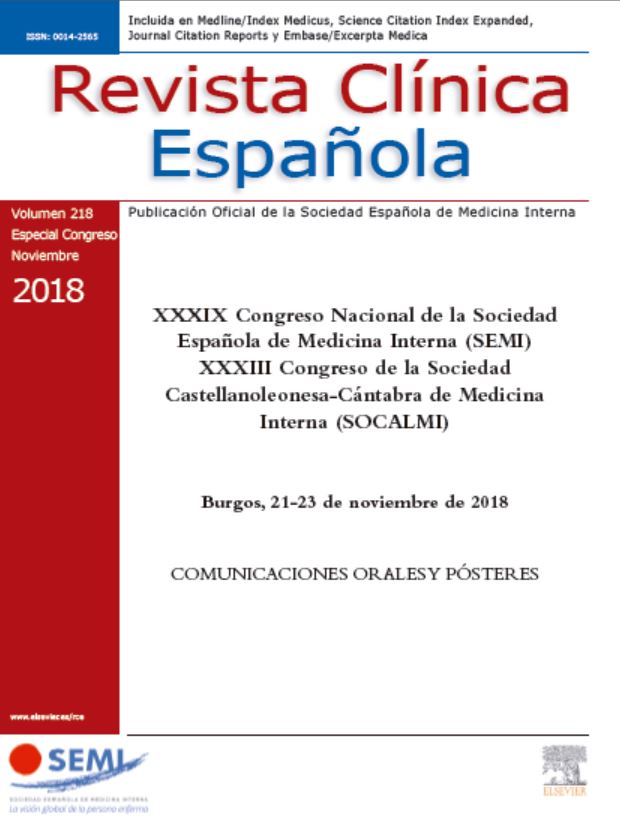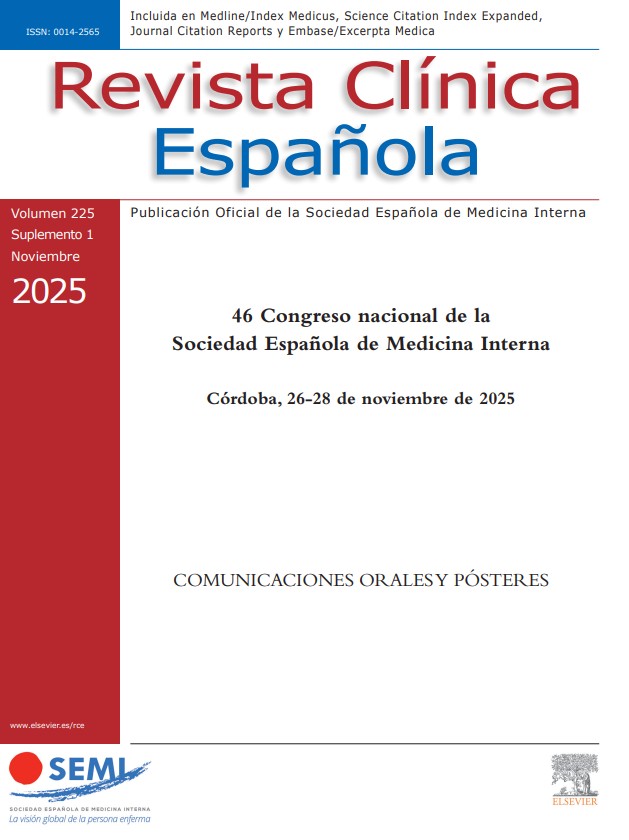IF-101 - ANTIBODIES AGAINST ALFA-ADRENERGIC, MUSCARINIC CHOLINERGIC AND NICOTINIC GANGLIONIC ACETYLCHOLINE RECEPTORS: DYSAUTONOMY WITH AUTOIMMUNE FEATURES: A PILOT RETROSPECTIVE STUDY
1Medicina interna, 3Laboratorio clínico. Complejo hospitalario Ruber Juan Bravo. Madrid 2Biochemial sectoin. CellTrend GmbH. Luckenwalde, Berlin, Germany.
Objectives: In recent years, some authors have described the present of several autoantibodies against distinct neurological receptors, which cause dysautonomia (gastrointestinal dismotility (GID) and tachyarrhythmia) and are linked to fibromyalgia/multiple encephalomyelitis (F/ME) and chronic fatigue syndrome (CFS) too. Here we describe the Clínical utility in an outpatient office focused on systemic autoimmune diseases (SAD).
Material and methods: We designed a prospective Clínical descriptive research. We reviewed our Clínical files in the Complejo Hospitalario Ruber Juan Bravo since January 2018. We started to include patients as soon we contacted with laboratory CellTrend GmbH (Luckenwalde, Germany) and checked our protocol to send blood samples for immune-assays. Different batteries of autoantibodies were ordered, in function of patient’s symptoms (labelled A, C, P): nicotinic ganglionic acetylcholine receptor autoantibody (α3-AChR Ab) (panel A) – local laboratory -; β-1 adrenergic receptor, β-2 adrenergic receptors Ab, muscarinic cholinergic (M3 and M4) receptors Ab (panel C); Angiotensin-II-Receptor-1 (AT1R) Ab, Endothelin-Receptor-A (ETAR) Ab; β-1 adrenergic receptor, β-2 adrenergic, muscarinic cholinergic (M1-M5), α-1 adrenergic, α-2 adrenergic receptors Ab (panel P). Those patients affected of neoplasia were excluded. The patients could have any other SAD according to present EULAR diagnostic criteria. GID were diagnostic according to Rome IV consensus. The cardiovascular symptoms were diagnostic using common Clínical and consensus criteria using European Society of Cardiology, Neurology and Endocrinology guidelines.
Results: Of the 14 selected cases, 12 have the results of any panel. 75% were females. Median age of 43 (I25-75 38) yrs. 60% cases fulfilled criteria for another well-defined SAD (n = 7); Sjögren (n = 1), SLE (n = 1), ME/CFS (n = 3), mesenteric panniculitis (n = 1), non-radiological ankylosing spondylitis (n = 1). 3 panels of antibodies were positive (pane P, n = 2, panel C, n = 1). All four cases have negatives results for panel A. Of them, one have a final diagnostic of autoimmune dysautonomia and almost complete remission using intravenous immunoglobulins (Igiv) (n = 1); diabetic severe neuropathy (n = 1), severe irritable bowel syndrome (n = 1), nonspecific dysautonomia. Half of the cases, have received any time immunosuppressive therapy.
Discussion: Autoantibodies against distinct neurological receptors might be related to some SAD, or even be the responsible in a subset of patients - as in the case of (F/ME). It might be help to correctly classify those affected of SAD when any symptoms suspected of F/ME is developed. Even, they could help to choice the next proper therapy option. An important Clínical clue is the association of F/ME, CFS, cardiovascular and/or gastrointestinal symptoms not fully explained by any other disease.
Conclusions: Dysautonomia with distinct autoimmune features is a growing field of research with important implications in therapy on day-by-day in the outpatient office focused on SAD.








